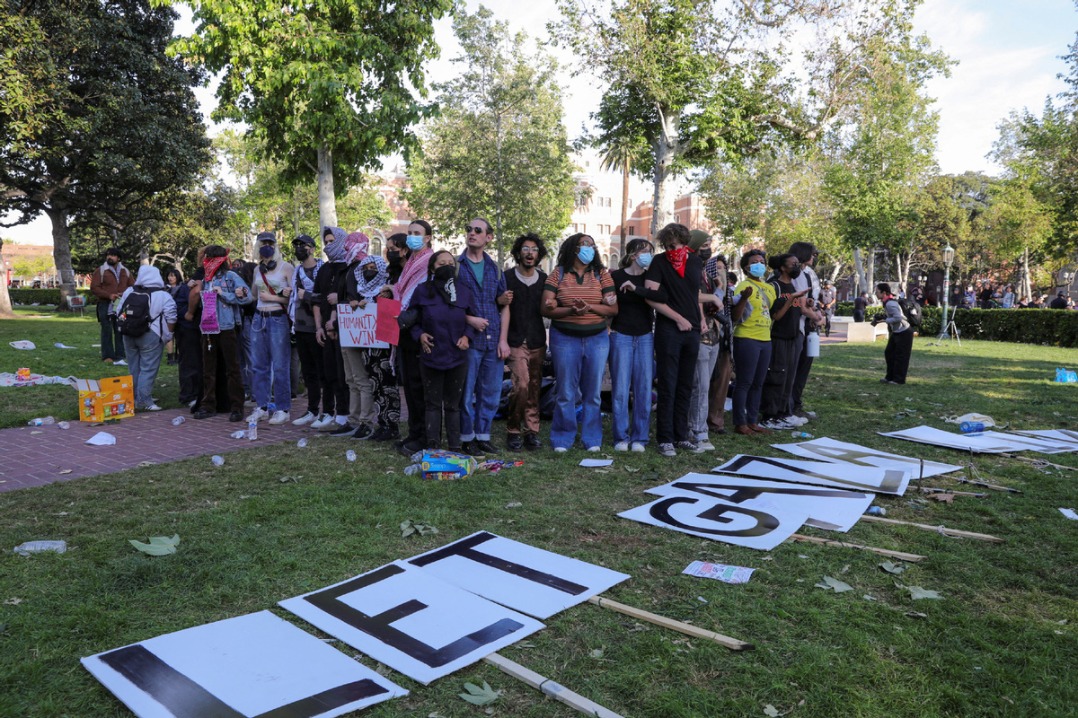HKSAR needs to take decisive steps to combat 'fake news'
By Paul Yeung | China Daily Asia | Updated: 2019-12-12 09:31

With the political turmoil arising from the anti-extradition bill movement having dragged on for an astounding six-month period, few would disagree that rebuilding trust across community sectors is a critical issue in Hong Kong. Now that the extradition law amendment bill has been withdrawn and the District Council elections are over, it is high time that people of Hong Kong stand together to restore the city.
However, the intensifying polarization in society, facilitated by the spread of rumors and fake news relating to political issues, is a major stumbling block to rebuilding trust. These ill-intentioned rumors serve no other purpose than to fuel fears and anger, and they widen the rifts among people. For instance, the opposition camp claimed that six people were killed at the Prince Edward MTR station on Aug 31 when police carried out a removal operation. This rumor apparently has served them well in stoking much public anger since September, and has led to escalating violence and casualties ever since. However, according to an investigative report released by FactWire at the end of November, the six were either sent to a hospital or police station, and were very much alive and kicking. Unfortunately, the report came too late, and the damage to the trust of police had already been done. Rumors like this are the greatest obstacle to rebuilding trust. This problem needs to be tackled as soon as possible.
Rumors are indeed nothing new. But it is a cause of concern in politics, especially when the rapid development of the internet and social media helps fake news go viral quickly. This phenomenon can be aptly explained by the term “post-truth politics”, which refers to a political culture in which debate is largely framed by appeals to emotions instead of evidence and facts. The term was even chosen as Oxford Dictionaries’ Word of the Year in 2016 due to its significant role in the Brexit referendum and the US presidential election. It is discovered that one can turbocharge the harmful social polarization by disseminating bad or fake information through technology. Obviously, post-truth politics have been playing their part in the current political saga in Hong Kong, manifested in the escalating violence and hatred against the government and the police. Learning from international experience, we can cope with this problem in mainly two ways.
The first one is to take a hard line on fake information and rumors. Singapore has set a good example in this regard. In 2018, the Select Committee on Deliberate Online Falsehoods, which is a select committee of the Parliament of Singapore, was formed to examine and report on the problem of deliberate online falsehoods and to recommend strategies to deal with them. In 2019, the Protection from Online Falsehoods and Manipulation Bill was passed and came into effect in October. The Infocomm Media Development Authority is tasked to implement this law. Under this new law, all cabinet ministers can issue a “Part 4 Direction” to social media companies and internet service providers if an individual does not correct or take down posts with false statements of fact. Last month, the Singapore government invoked one of the most controversial measures of this new law to order Facebook to rectify a post by an Australia-based blogger who refused to comply with the law. The Singaporean case is nevertheless difficult for Hong Kong to adopt, for it would require an assertive government that can delicately prioritize freedom of speech while being determined to resolve post-truth politics.
The second way is to take a soft line, which entails setting up fact-checking organizations. According to the Reporters’ Lab at Duke University, a “qualified” fact-checking organization should examine all parties and sides; examine discrete claims and reaches conclusions; track political promises; be transparent about sources and methods; disclose funding/affiliations; and set the primary mission as news and information.
The Taiwan FactCheck Center, for example, is a nonprofit organization established to examine the authenticity of information relevant to public affairs. The fact-checking operation is based on the principles of openness, transparency, rigor, and accountability. All fact-checks are built on verified materials, with reports explaining its review process, and a complete list of the source materials and information, and data used for verification is also attached at the end of the report. While some may question the political background of the center, it would, on political issues, select the subjects of fact-checking across different ideological positions and strive to give each position equal attention.
Xunzi, a Chinese Confucian philosopher, told us, “Rumors are stopped by the wise.” Although its effectiveness is still unknown at this moment, the fact-checking organizations, being a soft-line approach that is more palatable to the general public in Hong Kong, may make us wiser by dispelling rumors and fake news that spread like influenza, which requires good personal hygiene to prevent the spreading of germs. Therefore, the public should similarly maintain a good habit for consuming information. They should get used to consulting fact-checking organizations to identify and stop the spread of the virus. In the end, opinion leaders, especially political leaders, should be the one to educate the public. For those refusing to adopt the fact-checking habit, we should discredit them and be alert to what they say, for they may use rumors as a political tool to fuel a social movement.
The author is research officer of the One Country Two Systems Research Institute.
The views do not necessarily reflect those of China Daily.
























